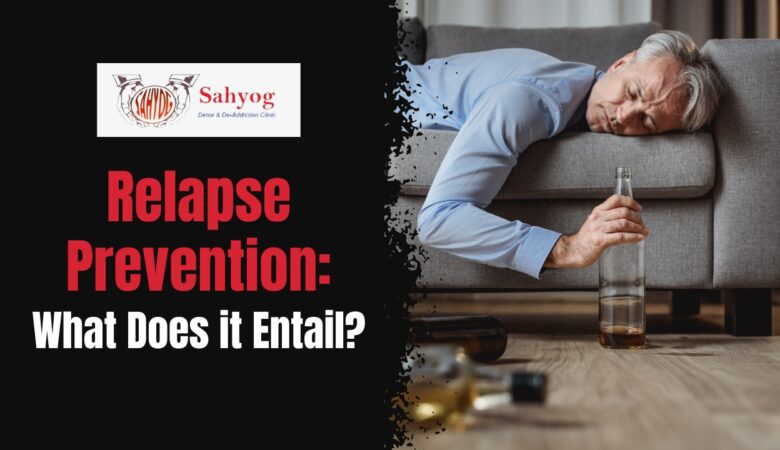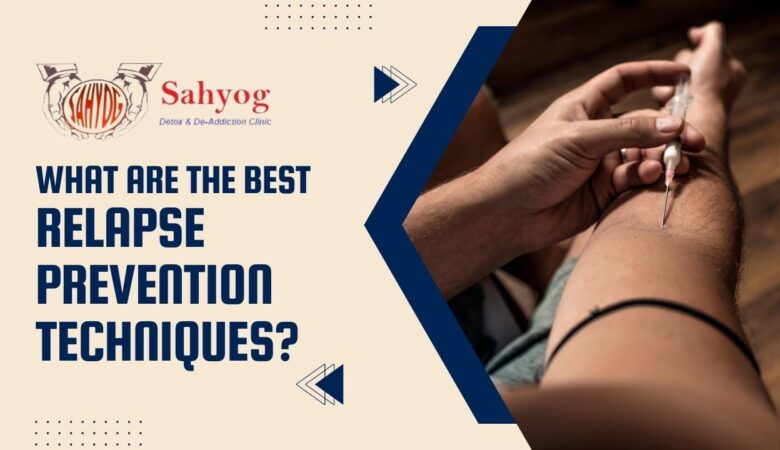Relapse Prevention: What Does it Entail?
Relapse prevention is a term used to describe the practice of trying to prevent oneself from engaging in behaviors that have been associated with relapse, such as using drugs or alcohol. It can be difficult to maintain sobriety, and successful relapse prevention requires ongoing effort and dedication. What is Relapse Prevention? Relapse prevention is a term used in the addiction treatment industry to describe a range of strategies and techniques that an individual can use to help avoid a relapse into substance abuse. The prevention may involve various forms of self-help, such as setting boundaries with substances, being mindful of triggers, and engaging in positive behaviors. It is a philosophy and practice of preventing individuals from relapsing into an addictive behavior or relapse syndrome. The goal of relapse prevention is to help individuals identify and address behaviors and thoughts that may lead to relapse, create a support network, and develop coping skills. It can be individualized to each person and includes strategies such as problem-solving, motivational interviewing, cognitive behavioral therapy, and self-help books. There are many types of relapse prevention programs, but all share the goal of helping people stay sober. One popular form is cognitive-behavioral therapy (CBT). CBT is a type of psychotherapy that focuses on changing how people think and behave. It is often used to treat addictions, but it can also be helpful in preventing relapse. CBT involves working with the patient to develop coping strategies and skills for dealing with temptations. These strategies may include avoiding places where drugs or alcohol are available, monitoring one’s thoughts and feelings, and setting goals for sobriety. CBT is often combined with other forms of therapy, such as medication therapy or peer support groups. Other forms of relapse prevention include self-help books and online programs. Self-help books can provide tips on how to deal with temptation and maintain sobriety, while online programs offer interactive tools and resources for recovering addicts. Relapse prevention is an important part of any addiction treatment program, and it can help improve one’s chances of achieving long-term sobriety. Types of Relapse Relapse prevention is the practice of anticipating and preventing instances of relapse. There are many types of relapse, but all share some common elements: a lapse in sobriety or abstinence, feelings of guilt or shame, and efforts to self-medicate. The best way to prevent relapse is to have a relapse prevention plan. This plan should include specific goals and strategies for avoiding relapses, as well as support systems that can help you when you do experience one. Familiarizing yourself with the signs of relapse can also help you recognize when you’re starting to feel them creeping up. If you do experience a relapse, don’t beat yourself up. Instead, take the time to reflect on what led up to the relapse, and use that information to improve your prevention strategies in the future. Signs That Someone May Be at Risk for Relapse There are many warning signs that someone may be at risk for relapse, but it is important to remember that not everyone who experiences them will relapse. For example, some warning signs of relapse might include: Experiencing increased alcohol or drug use Engaging in risky or destructive behavior, such as gambling, sex, or using drugs and alcohol together Feeling anxious or irritable when trying to abstain from alcohol or drugs Experiencing strong cravings for alcohol or drugs Having difficulty resisting temptation It is vitally important to understand the warning signs of relapse to help prevent it from happening. If you notice any of the following behaviors in someone you care about, it may be a sign that they are struggling and could benefit from intervention. How To Prevent Relapse Relapse prevention is the process of planning and executing strategies to prevent oneself from returning to harmful or addictive behavior. There are a few key components to relapse prevention, including identification of triggers and risk factors, developing an action plan, and monitoring progress. 1) Identification of Triggers and Risk Factors. The first step in preventing relapse is identifying potential triggers and risk factors that could lead you back to your addiction. Some common triggers include: Feeling stressed Lonely Bored Frustrated Being around people who use drugs or alcohol Feeling overwhelmed or helpless Having financial problems; and Experiencing adverse life events. It’s important to identify all of your triggers, so you can develop an action plan to avoid them. 2) Developing an Action Plan Once you know your triggers, it’s important to develop a relapse prevention action plan. This plan will include strategies for: Dealing with stress Loneliness, boredom Frustration, and Other negative emotions. It will also include specific goals for staying sober, such as reducing alcohol or drug use, focusing on positive activities, eating healthy foods, getting enough exercise, etc. It’s important to update your action plan regularly, so you can continue to make progress towards preventing relapse. 3) Monitoring Progress It’s important to keep track of your progress during relapse prevention by recording your thoughts and feelings on a daily or weekly basis. This will help you stay motivated and track your progress toward achieving your goals. Relapse prevention is an important step in preventing addiction from returning. By following the guidelines outlined in this article, you can develop a plan to prevent relapse and maintain your sobriety. Prevention Guidelines For Relapse Relapse prevention is a process to help individuals avoid returning to drug or alcohol abuse after successfully completing an intervention. It can include strategies such as setting boundaries with friends and family, developing a support system, and practicing stress management. One of the most important components of relapse prevention is education. Individuals need to be aware of their triggers and know how to identify warning signs of relapse. They should also be aware of the resources available to them, such as rehabilitation programs and support groups. It is also important to develop a plan for when relapse does occur. This includes setting realistic goals, identifying resources needed to achieve those goals,


